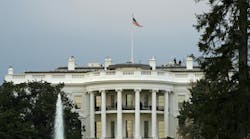Congressional Republicans insist their compromise allowing the US to evade widespread tax increases means the fight is finished over taxation in general. Oil and gas companies should expect otherwise.
To ensure extension of Bush-era tax cuts, Republicans agreed to let rates increase on incomes of the wealthiest taxpayers. For lawmakers inclined not to raise tax rates in a weak economy, this was a major concession. It was all the more so in a deal that delayed major action on federal spending, cuts to which many Republicans usually make a condition of tax hikes.
Fight to resume
The fight over spending will resume when Congress turns to the tough issues of borrowing limits and automatic cuts in spending that were to have occurred Jan. 1 in absence of a new budget agreement but were deferred. Republican leaders want to concentrate on spending. On ABC—s This Week with George Stephanopoulos, Sen. Minority Leader Mitch McConnell (R-Kent.) wishfully declared, "The tax issue is finished, over, completed." Next, he said, Congress must address "the biggest problem confronting our country and our future, and that—s our spending addiction."
That hope will receive no dispute here. But hope is all it is. Republicans control one house of Congress. Democrats control the other house and the White House. And Democrats seem not to regret the aggressive federal spending and rapidly growing debt that so trouble Republicans. The country thus finds itself in fundamental conflict over the size, role, and funding of the state. The impasse is historic. And Democrats have the upper hand.
Democrats do not, however, have the right to expect acquiescence by the many Americans concerned about what they see as their country—s swerve toward fiscal peril. The opposition party must oppose. But it won—t do so successfully if it keeps generalizing about demon spending. Spending is not all alike.
The biggest spending problem is the category known as entitlements—the government outlays for health and welfare that constitute the social safety net most people agree any country should have in place. Entitlement spending is out of control. Extrapolation of current trends can show it to be capable of crushing the economy in a relatively few years.
But Republicans can—t do much about entitlement spending. When they mention Medicare or Social Security Democrats call them mean-spirited. And the smear works.
A more-promising target for fiscal conservatives at this moment in history is expenditure of public money undertaken to effect economic stimulus. In crises, timely outlays by the government indeed can give a stalled economy the nudge it needs. Over time, however, public spending just moves wealth from one part of the economy to another without providing net expansion. Inevitably, the parts away from which most wealth moves are productive ones. And the recipient parts tend to be the best connected politically. This kind of stimulus doesn—t last long.
Obama has been an eager practitioner of stimulus spending, and his strategy hasn—t worked. Expectations for US growth in gross domestic product this year remain at no more than 2%. The Labor Department estimates the unemployment rate in 2012 fell below levels of the past 3 years but remained uncomfortably high at 7.8%. And the torpor exists despite interest rates kept at abysmal levels by the Federal Reserve and spending that has both expanded the federal budget deficit to more than $1 trillion in each of the past 3 years and grown as a share of GDP.
Failed strategy
For now, Republicans should focus on stimulus spending and pummel it as an obviously failed strategy. Doing so wouldn—t end the US fiscal crisis because it wouldn—t bring entitlements under control. But Republicans can—t win with entitlements. With stimulus spending, they might.
The oil and gas industry should support any effort to control spending of any kind. After "the rich," it—s an eternal target for taxation, an issue lawmakers in a spending mood never will let die.
